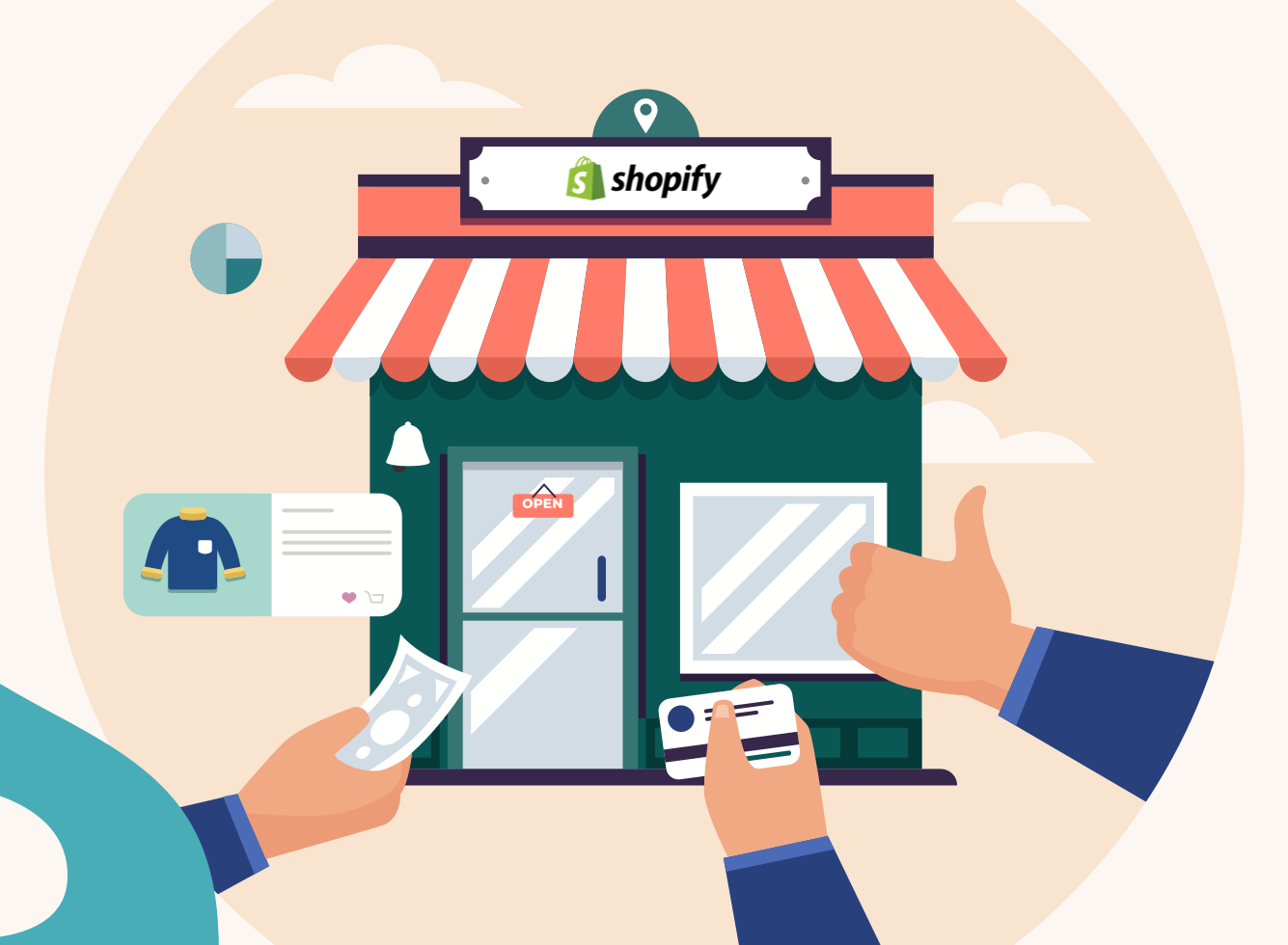20 Tips for Turning Your Shopify Store into a Conversion Powerhouse

Transform Your Shopify Store into a Conversion-Boosting Dynamo
Without further ado, here are 20 useful tips to take your Shopify store’s conversion rate to the next level.
-
Align Your Theme with Your Brand and Audience
The Shopify storefront is the digital face of your brand and in many ways, Shopify store optimisation starts with theme selection. This means picking a Shopify theme that both mirrors your brand’s public image and fits with your target audience.
Getting your theme right can increase your chances of creating an environment where visitors are less likely to just bounce off. Ultimately, consistency in brand presentation boosts recognition, and when combined with an appealing design, it can significantly improve conversion rates.
-
Enhance the Customer Journey
Your store should be more than just a place to buy things. It should offer an exceptional customer experience that sets you apart from your competitors. This means you need to create a seamless browsing experience that includes an efficient checkout process. Any barriers to purchasing, such as clunky navigation or a complicated checkout process, can turn potential customers away.
Minimise distractions and make it easy for customers to find what they’re looking for and complete their purchase. To truly optimise the Shopify website experience, consider hiring a Shopify developer or partnering with a Shopify development agency. Their expertise can be invaluable in streamlining the user journey.
-
Create Intuitive Product Categories
Clarity is key in any eCommerce platform. By setting up your Shopify store with logical product categories, you not only make it easier for customers to navigate but also optimise for search engines. Simplifying a user’s search is critical for Shopify conversion optimisation. When products are easy to locate, you’re reducing potential friction points, increasing the likelihood of a sale. Organising your products into clear and intuitive categories will also improve the overall user experience, making it more likely for customers to return.
-
Invest in Quality Imagery and Descriptions
How you display your products has a huge impact on conversion rates. High-resolution images that show the details of each product combined with persuasive descriptions can make all the difference. These components play a significant role in Shopify conversion rate optimisation. With the increasing popularity of online shopping, customers now expect clear and detailed images when making a purchase.
-
Offer Rich, Engaging Content
Your Shopify store can be so much more than a transactional space. Introducing engaging content like insightful blog posts, instructional videos, and genuine customer reviews goes a long way toward building customer trust and loyalty. By providing useful and valuable content, you establish your brand as an authority in the industry, making it more likely for customers to return for future purchases. This strategy not only offers added value to your audience but also boosts your SEO, drawing more organic traffic.
-
Embed Compelling Call-to-Actions
The customer journey on your Shopify storefront should be both intuitive and persuasive. A well-placed and clear call-to-action (CTA) can make all the difference. Incorporate CTAs that not only look good but also communicate a sense of urgency or value. Whether it’s a “Buy Now”, “Grab the Deal”, or “Subscribe to our Newsletter”, make it impossible for them to resist clicking.
-
Streamline the Checkout Experience
Navigating the checkout shouldn’t feel like solving a maze. Enhancing the checkout experience by simplifying the steps can dramatically reduce cart abandonment rates. Offering guest checkouts or multiple payment gateways is a way to optimise the Shopify website experience, catering to various customer preferences and ensuring a smooth purchase. Additionally, consider adding trust signals like security badges or money-back guarantees to increase customer confidence in completing the transaction.
-
Display Your Reviews and Customer Ratings
Nothing speaks louder than the voice of satisfied customers. In the world of eCommerce, showcasing reviews and customer ratings is almost as powerful as word-of-mouth recommendations. By integrating these into your product pages, you can earn trust, which improves your Shopify conversion optimisation. It gives potential buyers a direct look at other customers’ experiences, helping to inform their own purchasing decisions.
-
Be Transparent with Shipping Costs
Customers value transparency. When they’re about to make a purchase, unexpected costs can be a deterrent. Being upfront about shipping costs or even offering incentives like free shipping for orders over a certain amount can boost overall customer satisfaction and improve your Shopify conversion rate optimisation efforts.
-
Strategically Use Exit-Intent Pop-Ups
It’s always a pity to see potential customers leave without making a purchase. Exit-intent pop-ups serve as a gentle nudge, reminding them of what they might be missing out on. This could be in the form of a special discount or a limited-time offer. However, it’s important to strike a balance; while they can be effective, they shouldn’t become a nuisance. Consider using insights from Shopify experts or even tools focused on conversion rate optimisation that Shopify offers to make sure you’re not overwhelming your visitors.
-
Master the Art of Upselling and Cross-Selling
Enhancing your revenue often relies on successful upselling and cross-selling. But it takes a bit more effort than just suggesting related products or superior alternatives – you need to understand the needs of your customers. What are they really looking for? What would add value to their purchase? Consider offering complementary products or services and highlight how they can benefit the customer’s overall experience with your brand. This not only increases the average order value but also improves customer satisfaction, leading to potential repeat purchases in the future.
-
Tap into the Power of Personalisation
It’s no secret that customers are more inclined to buy when they feel the shopping experience is tailored just for them. By leveraging data-driven insights – like past browsing behaviours or purchase history – you can create more personalised product suggestions and customer journeys. This level of customisation can help build a stronger connection with your customers, leading to higher conversion rates and increased loyalty.
-
Make Your Store Mobile-Ready
These days, the world is mobile. Shopping from mobile devices is the new norm and your store should be ready for it. Any Shopify store optimisation strategy needs to take mobile shoppers into account. After all, they are the majority of web users. From easy navigation to swift load times, every element should cater to the on-the-go shopper. Additionally, consider implementing mobile-specific features like one-click checkout or push notifications to keep customers engaged and coming back for more.
-
Provide Live Chat Support
A timely response can be the difference between a missed opportunity and a sale. Integrating a live chat feature into your site will allow your customers to get instant answers. When they know there’s someone (or AI assistance) ready to help, it provides an easy route to address questions and supports your customer’s purchases. If you’re not sure where to begin, consider reaching out to a Shopify development agency or hire Shopify developers who can get you started with an integrated live-chat support feature.
-
Continuously Test, Tweak, and Perfect
Resting on your laurels isn’t an option in the world of eCommerce. This means you need to adopt a culture of continuous testing and optimisation for your Shopify platform. You can utilise analytics to understand user behaviour, employ A/B testing to refine your strategies, and stay attuned to shifts in the eCommerce landscape. Shopify experts often recommend an iterative approach – always analyse, adapt, and enhance to ensure your store remains a cut above the rest.
-
Analyse Conversion Paths and Customer Data
Gone are the days of hunches and guesses. Today, data-driven insights can easily highlight the strengths and weaknesses of your Shopify store. By dissecting your core conversion pathways, you can uncover potential obstacles and pinpoint areas where improvement is needed.
You can leverage tools like Google Analytics to monitor visitor behaviour in great detail. Keeping a tab on metrics such as bounce rates, click-through rates, and average order values can also be incredibly useful. This data, when paired with Shopify store optimisation techniques, will allow you to refine the user experience – and ultimately increase conversion.
-
Create a Distinctive Brand Identity
In the crowded Shopify marketplace, a store that stands out is more likely to succeed. This isn’t a one-time task; it requires continual effort and attention. From unique branding elements like logos, colour schemes, and fonts to consistent messaging across all channels, a distinctive brand identity can help set your store apart from competitors and establish a loyal customer base. It’s also important to regularly review and update your brand identity as trends and customer preferences evolve.
-
Rank Higher with Shopify SEO Tactics
Driving organic traffic is crucial for any eCommerce store, and Shopify SEO strategies play a significant role in achieving this goal. SEO isn’t just about keywords though – it’s also about creating high-quality, relevant content that provides value to your target audience. Optimising product descriptions, titles, and meta tags, as well as earning links from reputable sites can all contribute to higher visibility on search engine results pages (SERPs).
Keep in mind that SEO is an ongoing process and requires continuous monitoring and adjustments. When you invest time in optimising your Shopify website content, incorporating relevant keywords, and perfecting the metadata, you’ll be taking a proactive step towards increasing your store’s visibility and driving more sales.
-
Channel the Power of Social Media
The conversion power of social media can’t be underestimated. Channels like Instagram, Facebook, and Twitter are perfect for engaging with your audience, listening to their needs, and building a community. You can use these platforms to showcase your products creatively, engage with your audience authentically, and drive targeted campaigns to funnel traffic to your Shopify storefront. A consistent, engaging social presence acts as a bridge that connects potential customers to your Shopify store.
-
Create Email Automation Campaigns
Repeat business is one of the most valuable assets of any eCommerce store, and email marketing can be a powerful tool for nurturing relationships with your customers. With Shopify’s email automation capabilities, you can create targeted campaigns based on customer behaviour and preferences.
From welcome emails to abandoned cart reminders, these automated emails can increase customer loyalty and drive more sales. Shopify offers robust tools for email marketing, and with integrations like Mailchimp or Klaviyo, you can use this marketing strategy to your advantage. If you’re looking to optimise these sequences further, consider seeking out Shopify experts to guide your strategy.
Partner with a Shopify Development Agency
You now have the expertise to build a high-converting Shopify store. However, it’s always beneficial to have a team of professionals who can help take your store to the next level. Partner with a Shopify development agency that can assist with design, development, and marketing strategies. This can save you time and resources while ensuring your store is optimised for success.
Here at Vsourz, we can help you build up a dedicated team of Shopify developers to create a high-converting Shopify store and drive your business growth. Get in touch today.






